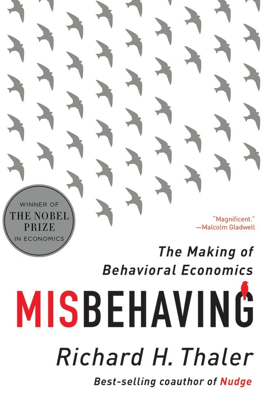At the Poker Table
Behavioral Insights from Poker Games at Cornell
During regular low-stakes poker games with colleagues at Cornell, the author observed distinct behaviors influenced by players' performance relative to their mental accounting. Key insights include:
Loss Aversion and Risk-Taking: Players who were losing tended to take higher risks not for the best possible recovery strategy, but for options that offered any ray of hope, even if improbable, like betting on long shots to try to break even. Kahneman and Tversky’s initial explanation in prospect theory that people are risk-seeking when facing losses captures some, but not all, of the nuances observed. Players avoided large bets that could decisively help them recover but were risky, opting instead for smaller, less-threatening bets.
The “House Money Effect” and Mental Accounting: The players exhibited what is known commonly in gambling as playing with "house money." When ahead, they seemed to treat their winnings as separate from their own money, showing a tendency to risk these winnings more freely than their personal funds. This observation underlines a profound deviation from the economic principle that money is fungible.
In collaboration with Eric Johnson, a marketing professor, the author sought to scientifically replicate these behaviors observed in the poker game. They designed a study that could ethically allow loss and gain scenarios by manipulating the odds of gambles chosen to calculate the overall loss or gain for participants. Here are primary findings from some of the experimental questions:
Problem 1: Demonstrated the house money effect, where individuals, previously informed of a $30 gain, showed increased risk propensity by choosing uncertain outcomes over a guaranteed neutral result.
Problem 2 and Problem 3: Highlighted complex behaviors in scenarios of loss. The chance to break even dramatically influenced choices, with individuals preferring riskier options only when such options allowed potentially recovering the initial loss.
Implications and Observations in Broader Economic Behavior
The author extends these insights to broader economic phenomena: - Financial Markets: Similar behaviors observed in the poker games mirror actions in financial markets, where investors might take increasing risks with 'new' money or to recover losses, potentially contributing to economic bubbles.
- Professional Risks and Management Necessities: Mutually fund managers and even rogue traders may take on disproportionate risks towards year-end or when significantly behind, respectively. This suggests that risk management strategies need to account for behavioral responses to losses and the lure of breaking even.
These observations and studies contribute to a richer understanding of how individuals make financial decisions under different conditions of gains and losses, reinforcing the need for economic models that account for complex human behaviors rather than adhering to the idealized rational decision-maker model.
